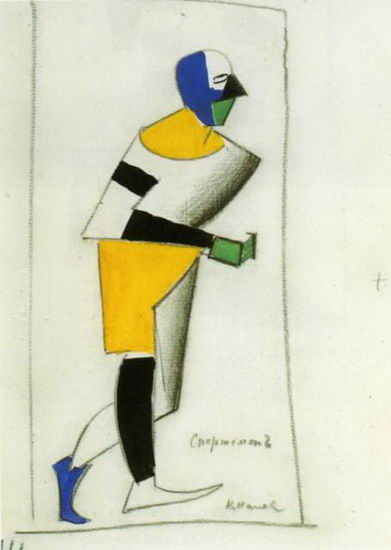DYR BUL SHCHYL
By:
August 10, 2024
A series dedicated to poems, published c. 1900–1935, the Radium Age sf-adjacent themes of which include: dystopia and utopia, far-out mathematics and the fourth dimension, Afro-futurism, catastrophe, future war, new technologies, scientific breakthrough, dehumanization, cosmic awe, disenchantment and unseen forces, unknowable aliens and singularity. Research and selection by Joshua Glenn; thematic index here.

Dyr bul shchyl
ubesh shchur
skum
vy so bu
r l èz
— 1913. Dyr bul shchyl (Russian: Дыр бул щыл) is the earliest and most famous zaum/transrational poem by Aleksei Kruchenykh, written using the invented Zaum language — which, according to the author, is “more Russian national than in all of Pushkin’s poetry.” The poem was written in December 1912, a date the author then called “the time of occurrence of the phenomenon of Zaum language (i.e. the language that has no utility value), in which are written the whole independent works, and not just parts thereof (as the chorus, sound decoration, etc.).” Published January 1913 in a series of “three poems” in Kruchenykh’s Pomada (Pomade).
Zaum are the linguistic experiments in sound symbolism and language creation of Russian Cubo-Futurist poets such as Velimir Khlebnikov and Kruchenykh. The language consists of neologisms that mean nothing. Coined by Kruchenykh in 1913, the word zaum is made up of the Russian prefix за “beyond, behind” and noun ум “the mind, nous” and has been translated as “transreason”, “transration” or “beyonsense.”
Above is Marjorie Perloff’s English transliteration.
RADIUM AGE PROTO-SF POETRY: Stephen Spender’s THE PYLONS | George Sterling’s THE TESTIMONY OF THE SUNS | Archibald MacLeish’s EINSTEIN | Thomas Thornely’s THE ATOM | C.S. Lewis’s DYMER | Stephen Vincent Benét’s METROPOLITAN NIGHTMARE | Robert Frost’s FIRE AND ICE | Aldous Huxley’s FIFTH PHILOSOPHER’S SONG | Sara Teasdale’s “THERE WILL COME SOFT RAINS” | Edith Södergran’s ON FOOT I HAD TO… | Robert Graves’s WELSH INCIDENT | Nancy Cunard’s ZEPPELINS | D.H. Lawrence’s WELLSIAN FUTURES | & many more.
